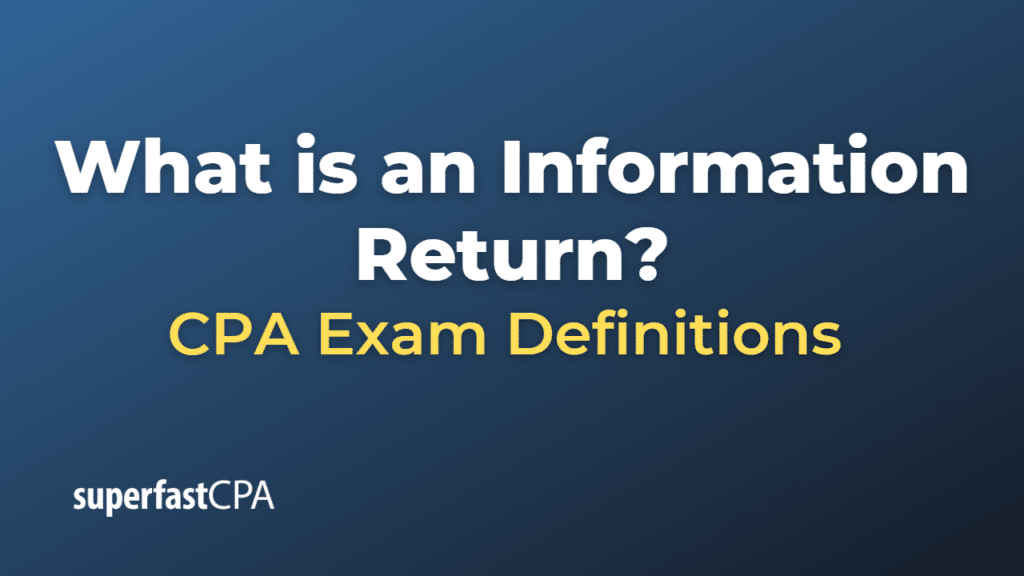Information Return
An information return is a tax document that certain businesses are required to file to report certain business transactions to the Internal Revenue Service (IRS). It’s called an “information return” because it’s used to transmit information about income, rather than to calculate a tax liability.
An information return provides the IRS with details about certain types of income or transactions, so the IRS can ensure that individuals and businesses are reporting income accurately on their tax returns. Businesses often need to send copies of these forms to the individuals or entities involved in the transactions as well.
Some common types of information returns include:
- Form W-2: This form is sent by employers to employees and the IRS. It reports an employee’s annual wages and the amount of taxes withheld from their pay.
- Form 1099 series: These forms are used to report various types of income other than wages, such as self-employment income, interest, dividends, government payments, distributions from pensions, annuities, retirement or profit-sharing plans, IRAs, insurance contracts, etc.
- Form 1098 series: These forms are used to report payments made or amounts paid that might be deductible by the receiver. For instance, Form 1098 reports mortgage interest paid by a taxpayer.
Remember, these are U.S.-specific forms and the requirements might differ in other countries. Always consult a tax professional for specific advice about tax reporting requirements.
Example of an Information Return
Let’s use the example of the 1099-MISC form, which is an information return commonly used in the United States.
Suppose you’re a freelance graphic designer. You worked for a company during the tax year and earned $8,000 for your services. The company would be required to send you a Form 1099-MISC by January 31st of the following year. This form would show the total amount they paid you during the tax year. The company would also send a copy of this form to the IRS.
Here’s why this is important: When you file your taxes, you’re required to report all of your income, including the $8,000 you earned from that company. The IRS will check your tax return against the information returns it has received to make sure the income you reported matches what others have reported paying you. If you forgot to report the $8,000 on your tax return, the IRS would know because of the 1099-MISC form the company filed.
In this way, the 1099-MISC form serves as an “information return”. It helps the IRS gather information about income that people need to report on their tax returns. This helps to ensure that everyone pays the proper amount of tax.













